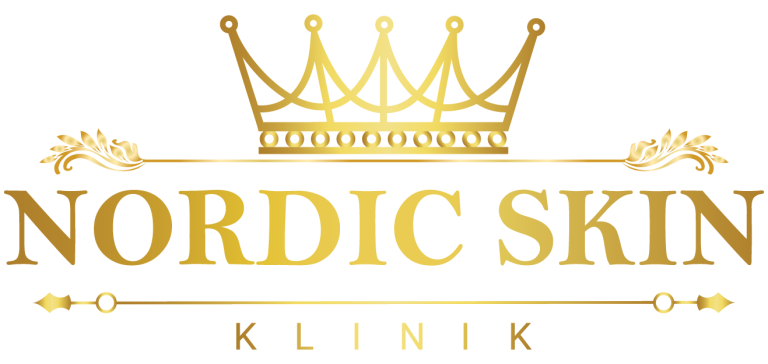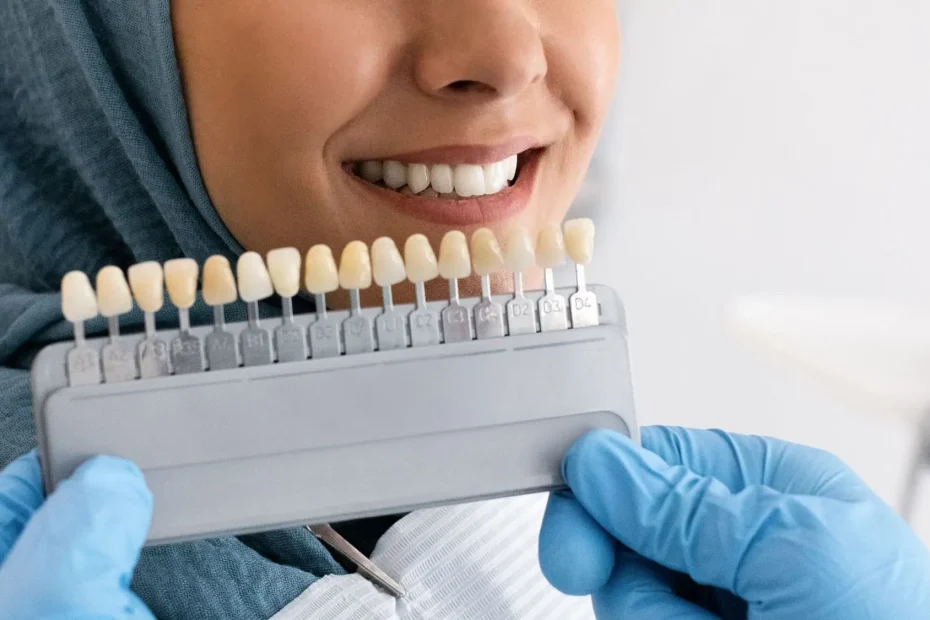Dental veneers are a popular cosmetic dentistry option for enhancing the appearance of your smile. They are thin, custom-made shells that are bonded to the front surface of your teeth to improve their color, shape, size, or length. Veneers can be used to treat different dental issues, including discoloration, chipped or cracked teeth, gaps between teeth, and minor misalignment.
What Are Dental Veneers?
Dental veneers are wafer-thin shells typically made from porcelain or composite resin. They are custom crafted to fit each patient’s teeth perfectly and are designed to mimic the natural appearance of teeth. Veneers are a versatile solution for enhancing the aesthetics of your smile, providing a long-lasting and natural-looking result.
How do veneers on tooth work?
Veneers work by covering the front surface of teeth, effectively hiding imperfections and improving their appearance. The process involves careful preparation of the teeth, followed by the fabrication and bonding of the veneers. With proper care, veneers can last for many years, providing a durable and aesthetically pleasing solution for a confident smile.
Who needs dental veneers?
Anyone with cosmetic dental concerns such as discoloration, chipped or misshapen teeth, gaps, or minor misalignment may benefit from dental veneers. They are also suitable for individuals looking to enhance the overall appearance of their smile and boost their confidence.
Types of veneers
There are several types of dental veneers available, each offering unique advantages and considerations:
Composite veneers:
Composite veneers are made from a tooth-colored resin material that is directly applied and shaped on the teeth. This type of veneer can be completed in a single visit to the dentist’s office, making it a convenient option for some patients.
Porcelain veneers:
Porcelain veneers are crafted from high-quality porcelain material and are known for their durability and natural appearance. They require multiple visits to the dentist for preparation, fabrication, and bonding, but they offer superior aesthetics and longevity.
No-prep veneers:
No-prep veneers, also known as minimal-prep veneers, are ultra-thin veneers that require minimal tooth preparation. They are an excellent option for patients who prefer a conservative approach to cosmetic dentistry.
Removable veneers:
Removable veneers are a temporary cosmetic solution that can be easily attached and removed from the teeth. While they are not as durable or long-lasting as permanent veneers, they offer a quick and reversible way to improve the appearance of your smile.
Cost of Teeth Veneers:
The cost of veneers differs depending on a few factors, which are: the type of veneers, how many teeth are being treated, the complexity of the case, and the geographic location of the dental practice. On average, porcelain veneers tend to be more expensive than composite veneers due to their superior durability and aesthetics.
Procedure for Installing Dental Veneers:
The process of getting veneers typically includes the following steps:
1. Consultation: During the initial consultation, your dentist will evaluate your oral health and discuss your goals for treatment.
2. Preparation: To prepare the teeth for veneers, a small amount of enamel may be removed from the front surface of the teeth. This makes enough space for the veneers and ensures a passive fit on the tooth.
3. Impression: An impression of your teeth will be taken and sent to a dental laboratory, where your custom veneers will be fabricated.
4. Temporary veneers: While waiting for the permanent veneers to be made, temporary veneers may be placed to protect the prepared teeth.
5. Try in: Once the permanent veneers are ready, they will be carefully placed with try-in paste which mimics the shade of permanent cement to the front surface of your teeth. Any necessary adjustments will be made to ensure a comfortable fit and natural appearance.
6. Final adjustment: Your dentist may make final adjustments to the veneers to achieve the desired shape, size, and color before bonding it to the teeth.
7. Bonding: after the veneers are adjusted for the fitting, shape and shade the dentist will bond the veneers to the tooth using dental bonding agent and cement
8. Follow-up: After the veneers are placed, you may be asked to return for a follow-up appointment to ensure they are functioning properly and to address any concerns.
Advantages of Dental Veneers:
Dental veneers offer several advantages, including:
• Improved aesthetics: Veneers can enhance the color, shape, and overall appearance of your teeth, resulting in a more attractive smile.
• Durability: Porcelain veneers are highly resistant to staining and chipping, providing a long-lasting solution for a beautiful smile.
• Minimal invasiveness: Veneers require minimal tooth preparation compared to other cosmetic dental treatments, preserving more of your natural tooth structure.
• Versatility: Veneers can address a wide range of cosmetic dental concerns, from discoloration to minor misalignment, providing a comprehensive solution for smile enhancement.
Dental Veneers: FAQs
How can I keep my veneers in good condition?
To keep your veneers in good condition, it’s important to practice good oral hygiene habits, including regular brushing, flossing, and dental check-ups. Avoid biting into hard objects or using your teeth to open cans or lids, as this can damage the veneers.
What are the advantages of dental veneers?
The advantages of dental veneers include improvements in shape, shade and alignment, durability and minimally invasiveness.
Are veneers permanent?
While veneers are considered a permanent cosmetic dental treatment, they may need to be replaced over time due to normal wear and tear or damage. With proper care and regular visits to the dentist can increase the lifespan of the veneers, however, veneers can last for many years.
Do veneers damage your teeth?
When placed by a qualified dentist and properly maintained, veneers should not damage your teeth. In fact, they can help protect the underlying tooth structure and improve its strength and longevity.
In conclusion, dental veneers are a popular and effective cosmetic dentistry option for enhancing the appearance of your smile. With their natural-looking results, durability, and versatility, veneers offer a comprehensive solution for addressing various dental concerns and achieving a confident, beautiful smile. If you’re considering dental veneers, consult with a qualified dentist to determine the best treatment plan for your individual needs and goals. Skin111 provides comprehensive dental care solutions including Zoom teeth Whitening, Dental Implants, and Invisalign in Dubai. Book your appointment today to address all your dental needs.


